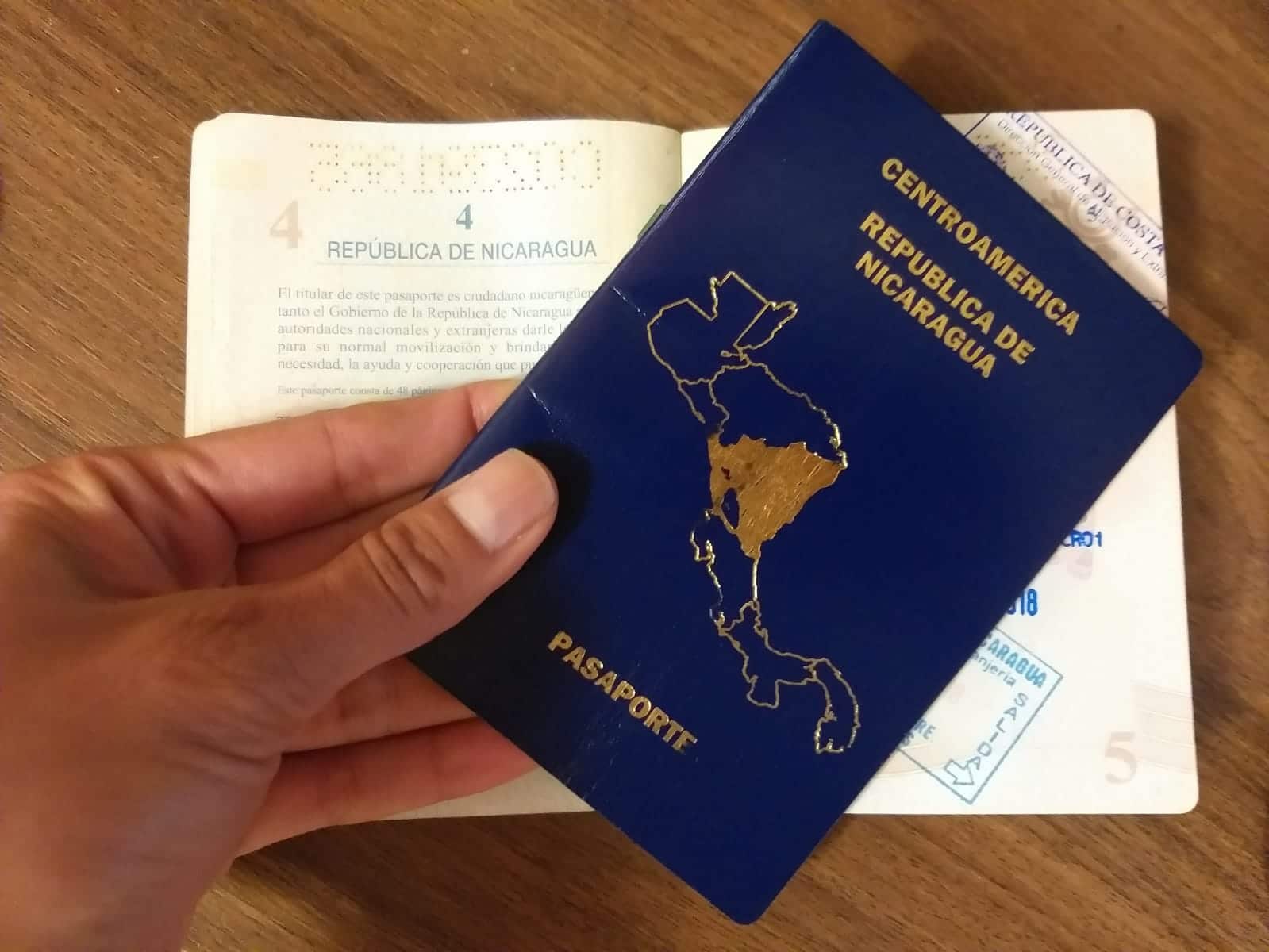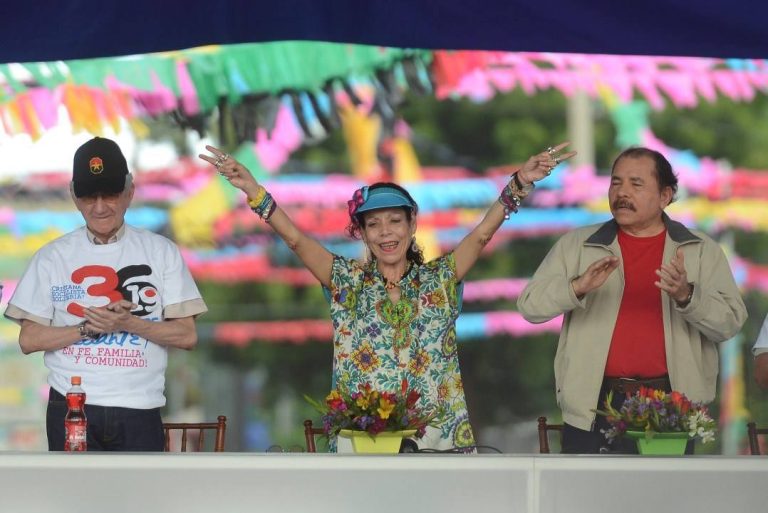4 de agosto 2016

Nicaragua: Public Employees Hindered from Traveling to USA

PUBLICIDAD 1M
PUBLICIDAD 4D
PUBLICIDAD 5D
All the masks that used to hide the authoritarian face of Ortega and Murillo and his dynastic project have fallen

For us Nicaraguans who grew up under the shadow of a dynastic dictatorship – in my father’s words, "the bloody Somoza brood"- the decision to name the wife of an authoritarian ruler as the vice presidential candidate has the unavoidable resonance of a disastrous past.
With Daniel Ortega and Rosario Murillo, the wheel of history is returning to a starting point we thought buried - family succession to remain in power - after almost four decades of revolution, counterrevolution, democratic transition and now authoritarian regression.
Nicaragua's history in the last century was marked by the dominance of the Somoza family dynasty and the sacrifice of generations of patriots who gave their lives to eradicate it. For 45 years, three Somoza’s successively held power: Anastasio I and his sons Luis and Anastasio II, interrupted only by the parenthesis of other leaders who did not escape the political and military control of the ruling family.
The Somoza regime led some periods of economic growth and modernization at the cost of massive social inequality and deep poverty. In the political arena, with the support of a Praetorian Guard and unconditional US support, it closed all the spaces for democratic competition, leaving rebellion as the only way out. In its last stage, the dictatorship governed primarily based on repression and genocide.
The Sandinista revolution that triumphed in 1979 was the result of an extensive national and international alliance led by the Sandinista Front. This revolution ousted the Somoza regime from power and set lofty goals of democratization and social justice within a socialist framework.
Despite the extraordinary social and political advances that were made in the early years, the revolution was held back by external aggression and by their own mistakes, intrinsic to the revolutionary model of total power, until the war caused the total collapse of the economy.
The FSLN lost the 1990 election and handed power over to the government headed by my mother, Violeta Barrios de Chamorro, an unprecedented event in our short democratic life. In the complex process of transition from war to peace and from a centralized to a market driven economy, which still continues today, profound institutional policy changes took place.
The Supreme Electoral Council emerged as the most credible institution in the country, while the army and police were professionalized instead of serving a given party, becoming truly national institutions. In 1995, to strengthen the process of separation and balance among branches of government, a constitutional reform passed that returned power to parliament and limited presidential powers. The demons of the past were exorcized by including strict regulations prohibiting reelection and consecutive term presidencies.
These institutional democratic guarantees began to derail with the corruption and the Aleman-Ortega pact in 1999-2000, which imposed the bipartisan division of powers in the state and reduced the percentage of votes needed to win the presidency on the first round to 35%. So in 2007, Commander Daniel Ortega returned to office with 38% of the vote, to install a personalized regime and concentrate all state powers, using them as a political extension of his party. Ortega entrenched himself in power through electoral fraud, demolished democratic institutions and has ruled through a combination of cooptation, repression, control of the media and local governments, and a lucrative economic alliance with big capital.
In 2011, he unconstitutionally imposed his first consecutive reelection, and under another electoral fraud that gave him a qualified majority in parliament, reformed the constitution three years later to establish indefinite reelection.
In the last chapter of his authoritarian drift, he infringed the right to independent electoral observation and again, like Somoza, has closed all democratic political spaces, to the extent that in the upcoming elections on November 6 the only real opposition is prohibited by law from participating.
The appointment of his wife as the FSLN vice presidential candidate was not a surprise to anyone in Nicaragua. It’s the natural consequence of a family regime that emptied the Sandinista Front Party of political content, ruthlessly eliminating its domestic competitors, to turn it into a machine that worships the presidential couple. Dora Maria Tellez has rightly said that the Ortega regime "is a parasite that sucked the Sandinista Front dry."
It also acts as an engine of economic power controlled by the ruling family that has profited from the illegal diversion of more than 3.5 billion dollars of Venezuelan assistance, handled without any kind of accountability through the giant consortium Albanisa and other lucrative activities.
Does the Ortega-Murillo presidential formula that supposedly governs on behalf of the poor, dare to file a financial statement of its family property and submit it to independent scrutiny? It cannot and never will, because the abundance, corruption, opacity and lack of transparency, represent the essential features of this political combination that seeks to perpetuate itself in power.
During the candidate registration ceremony, Ortega and Murillo tried to justify the ostentatious act of nepotism and family succession, presenting it as recognition of the rights of women under his rule. However although the law has expanded women’s representation under the Ortega-Murillo regime, the evidence of daily life show that women have lost political and social ground as citizens, starting with the criminalization of therapeutic abortion. Likewise, they continue to be victims of violence and abuse of power, while the state remains indifferent.
The plea for the rights of women, looks more like a mockery to conceal the persistence of an authoritarian leader who intends to govern without any kind of counterweight, even within his own party, and takes refuge in his family and his wife, as his last and only bastion of loyalty. Finally, Rosario Murillo who has been playing a role of co-chair, has now been placed in the constitutional line of succession of power.
In the history of Latin America there is only one similar case of a couple who came to power as an electoral formula. In Argentina in 1973, Gen. Juan Domingo Perón returned from exile and won the presidency with his second wife, Maria Estela (Isabel) Martínez de Perón as vice president. With the death of the leader a year later, Isabel became president in 1974 and was overthrown in 1976 by a military uprising that led to the worst military dictatorship suffered by that nation until 1983.
In Nicaragua it is too early to predict the future of family succession in power and whether it will impose a dynastic dictatorship. We are facing a new scenario that, firstly, represents a political challenge to the forces within the FSLN that still resist family control. As for the message sent to the nation, it has the virtue of being heard loud and clear. All the masks hiding the authoritarian face and dynastic project of Ortega have fallen. Now it's up to the people to recover a powerful weapon: the historical memory of the dictatorship.
This article has been translated by Havana Times.
Read the original version here.
Archivado como:
PUBLICIDAD 3M
Periodista nicaragüense, exiliado en Costa Rica. Fundador y director de Confidencial y Esta Semana. Miembro del Consejo Rector de la Fundación Gabo. Ha sido Knight Fellow en la Universidad de Stanford (1997-1998) y profesor visitante en la Maestría de Periodismo de la Universidad de Berkeley, California (1998-1999). En mayo 2009, obtuvo el Premio a la Libertad de Expresión en Iberoamérica, de Casa América Cataluña (España). En octubre de 2010 recibió el Premio Maria Moors Cabot de la Escuela de Periodismo de la Universidad de Columbia en Nueva York. En 2021 obtuvo el Premio Ortega y Gasset por su trayectoria periodística.
PUBLICIDAD 3D